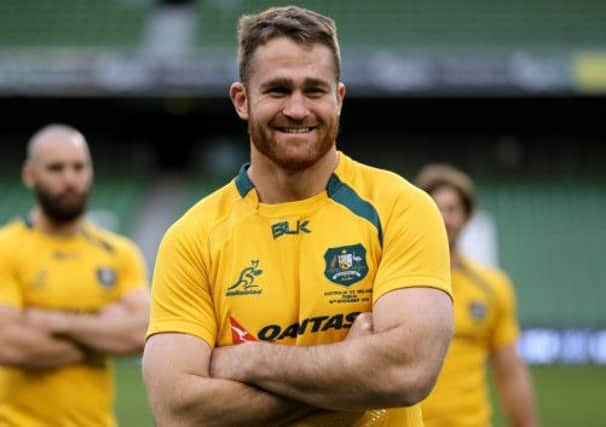Australia: Food for thought over culture of alcohol


James Horwill is as likeable and mature a leader as you will find and as he spoke to the media in the Wallabies’ Edinburgh hotel yesterday there was no reason to doubt his sincerity in the assertion that last week’s drinking session and subsequent ban for six players was not part of a wider “culture” problem.
He walked a delicate line, standing by his coach while refraining from criticising the banned players, stating that this was an issue about “bad decisions”. But, just as his facial expressions hinted at a personal disappointment at the actions of his team-mates, which forced him to endure more media questioning on why rugby players from Australia keep falling from grace, so it was clear that he was happy with the new hard-line approach from head coach Ewen McKenzie, a coach he knows well from their days together at Queensland Reds.
Advertisement
Hide AdAdvertisement
Hide AdIt was instructive that only one of the 15 players involved – others were given verbal or written warnings – were from the Reds, McKenzie’s former team, and another Reds player who opted not to join them for the late-night/early morning drinks was prop James Slipper. He explained why.
“It just goes back to making the right decisions,” said Slipper, echoing Horwill’s words. “We’re here for one thing only and that’s to win games at the weekend.
“Personally, I had my dinner and had trained very hard that day so sleep was the number one factor in my decision, but to win a game against Ireland, something which is very hard to do over in Dublin, was something I thought was very important to do.”
So is there a responsibility on professional rugby players to sacrifice late nights drinking in match weeks?
“It’s pretty well known that it [alcohol] doesn’t help with your performance,” Slipper replied. “I remember growing up through high school and into the academy system at the Reds and some sacrifices needed to be made if you wanted to be the best in your sport.
“In any sport I think it is the sacrifices made that separate the good from the very good and it comes back to the underlying thing here: the good decision-making. That’s what this all comes down to.”
He insisted that he would not criticise any team-mates, but the underlying message was pretty clear – Australian rugby may have a demon in its midst but it does not touch all players. McKenzie is intent on rooting out a problem that has dogged their game in recent times, and may be even more widespread.
On the same day we were speaking to the Wallaby forwards, the Australian Olympic Committee was announcing a new code of conduct for its athletes at the Winter Games in Sochi next year. Again, officials insisted there was no problem among athletes and that it was not a reaction to bad behaviour elsewhere, and yet it comes hot on the heels of the rugby ban and the controversy generated by Australian athletes at the London Olympics in 2012.
Advertisement
Hide AdAdvertisement
Hide AdThe country recorded their lowest medal haul in 20 years, with members of Australia’s swim team criticised for drunkenness in an independent review, and rower Josh Booth detained by police for damaging shop windows after a drinking session. Australian Rugby League players have created numerous headlines with late-night incidents, while alcohol was blamed for cricketer David Warner’s attack on England’s Joe Root in Birmingham this year.
The debate over how serious an issue alcohol is in Australian sport will no doubt rumble on but, for now, it appears the Wallabies’ ill-discipline may have boosted Scots hopes of finishing the year on a high and claiming an historic three wins on the trot over Australia. McKenzie has a strong squad, the envy of his compatriot Scott Johnson in the home camp, but he will tomorrow name a new back division and potentially a front five that has not played together often, if at all.
“Scotland are going to face the best Australian team that we can put out,” added Horwill, “and we always go in looking to play the best performance we can whoever the opposition are.
“Players understand that it’s never nice having those headlines back home especially when we’ve done a lot on the field to turn it around. We haven’t had the best year on the field and performances weren’t where they needed to be a lot of the time but we have to deal with the situation and move forward, and that’s all we’re looking forward to now, preparing to perform against Scotland.
“I have never beaten Scotland. It’s a big challenge and it’s something I’m pretty keen to do. Murrayfield is a very difficult place to play, and it always seems to lift the Scottish players. They always get up for a big games in these autumn internationals and if you are slightly off your game then Scotland will take advantage of it.
“I didn’t play last year in Newcastle [Australia] but, when we played here in 2009, they just got stuck right into us. We could not deal with the breakdown. That game still sticks in my mind as one where we need to be better. It’s something I haven’t forgotten as a player.
“We need to go out there and impose ourselves because Scotland at home is a big challenge. This is a difficult place to play when Scotland get their tails up.”